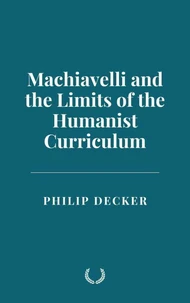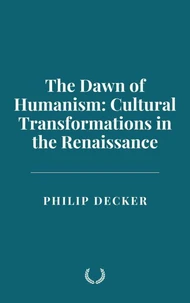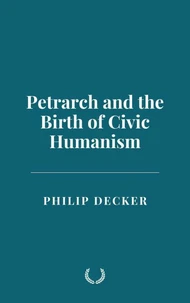Marquis de Lafayette (1757–1834) and the Early Stages of the French Revolution of 1789
Par :Formats :
Disponible dans votre compte client Decitre ou Furet du Nord dès validation de votre commande. Le format ePub est :
- Compatible avec une lecture sur My Vivlio (smartphone, tablette, ordinateur)
- Compatible avec une lecture sur liseuses Vivlio
- Pour les liseuses autres que Vivlio, vous devez utiliser le logiciel Adobe Digital Edition. Non compatible avec la lecture sur les liseuses Kindle, Remarkable et Sony
 , qui est-ce ?
, qui est-ce ?Notre partenaire de plateforme de lecture numérique où vous retrouverez l'ensemble de vos ebooks gratuitement
Pour en savoir plus sur nos ebooks, consultez notre aide en ligne ici
- FormatePub
- ISBN8227782236
- EAN9798227782236
- Date de parution22/01/2025
- Protection num.pas de protection
- Infos supplémentairesepub
- ÉditeurBig Dog Books, LLC
Résumé
This book explores the life and political journey of Marquis de Lafayette (1757-1834), focusing on his pivotal role in the French Revolution, his contributions to the early stages of the American Revolution, and the complex legacy he left behind. It delves into Lafayette's vision of a balanced and constitutional monarchy during the French Revolution, his disillusionment as radical forces took control, and the consequences of the revolution's violent turn.
Drawing on primary sources, historical analysis, and the ideas of Enlightenment thinkers like Rousseau and Montesquieu, the book examines Lafayette's ideological struggle to reconcile the ideals of liberty and equality with the practicalities of governance. It traces the radicalization of the Revolution, the rise of Napoleon Bonaparte, and the eventual eclipse of Lafayette's moderate republicanism by the forces of extremism.
The book further reflects on the enduring influence of revolutionary ideals, particularly in the shaping of modern republics and democratic movements across the globe. By analyzing Lafayette's role in both the American and French Revolutions, the work provides a nuanced understanding of the complexities of revolution, the tension between idealism and political reality, and the dangers of authoritarianism in the name of revolutionary change.
Ultimately, this work is a meditation on the legacy of Lafayette and the broader French Revolution, offering lessons on political reform, the nature of power, and the lasting impact of revolutionary ideals on the modern world.
Drawing on primary sources, historical analysis, and the ideas of Enlightenment thinkers like Rousseau and Montesquieu, the book examines Lafayette's ideological struggle to reconcile the ideals of liberty and equality with the practicalities of governance. It traces the radicalization of the Revolution, the rise of Napoleon Bonaparte, and the eventual eclipse of Lafayette's moderate republicanism by the forces of extremism.
The book further reflects on the enduring influence of revolutionary ideals, particularly in the shaping of modern republics and democratic movements across the globe. By analyzing Lafayette's role in both the American and French Revolutions, the work provides a nuanced understanding of the complexities of revolution, the tension between idealism and political reality, and the dangers of authoritarianism in the name of revolutionary change.
Ultimately, this work is a meditation on the legacy of Lafayette and the broader French Revolution, offering lessons on political reform, the nature of power, and the lasting impact of revolutionary ideals on the modern world.
This book explores the life and political journey of Marquis de Lafayette (1757-1834), focusing on his pivotal role in the French Revolution, his contributions to the early stages of the American Revolution, and the complex legacy he left behind. It delves into Lafayette's vision of a balanced and constitutional monarchy during the French Revolution, his disillusionment as radical forces took control, and the consequences of the revolution's violent turn.
Drawing on primary sources, historical analysis, and the ideas of Enlightenment thinkers like Rousseau and Montesquieu, the book examines Lafayette's ideological struggle to reconcile the ideals of liberty and equality with the practicalities of governance. It traces the radicalization of the Revolution, the rise of Napoleon Bonaparte, and the eventual eclipse of Lafayette's moderate republicanism by the forces of extremism.
The book further reflects on the enduring influence of revolutionary ideals, particularly in the shaping of modern republics and democratic movements across the globe. By analyzing Lafayette's role in both the American and French Revolutions, the work provides a nuanced understanding of the complexities of revolution, the tension between idealism and political reality, and the dangers of authoritarianism in the name of revolutionary change.
Ultimately, this work is a meditation on the legacy of Lafayette and the broader French Revolution, offering lessons on political reform, the nature of power, and the lasting impact of revolutionary ideals on the modern world.
Drawing on primary sources, historical analysis, and the ideas of Enlightenment thinkers like Rousseau and Montesquieu, the book examines Lafayette's ideological struggle to reconcile the ideals of liberty and equality with the practicalities of governance. It traces the radicalization of the Revolution, the rise of Napoleon Bonaparte, and the eventual eclipse of Lafayette's moderate republicanism by the forces of extremism.
The book further reflects on the enduring influence of revolutionary ideals, particularly in the shaping of modern republics and democratic movements across the globe. By analyzing Lafayette's role in both the American and French Revolutions, the work provides a nuanced understanding of the complexities of revolution, the tension between idealism and political reality, and the dangers of authoritarianism in the name of revolutionary change.
Ultimately, this work is a meditation on the legacy of Lafayette and the broader French Revolution, offering lessons on political reform, the nature of power, and the lasting impact of revolutionary ideals on the modern world.























